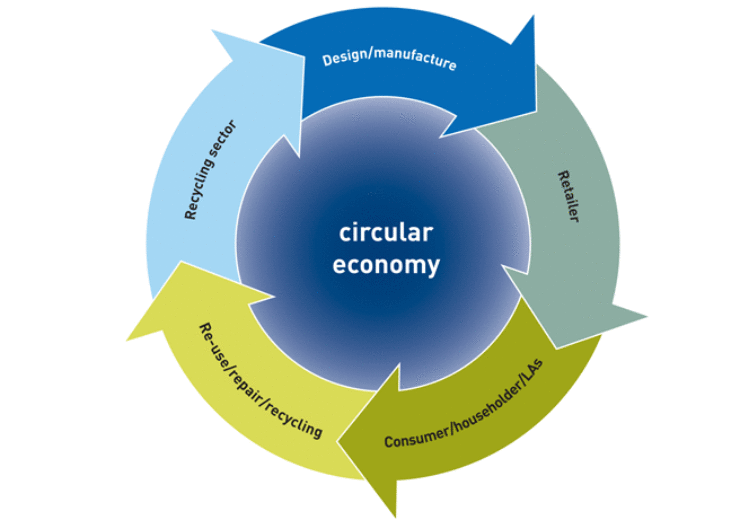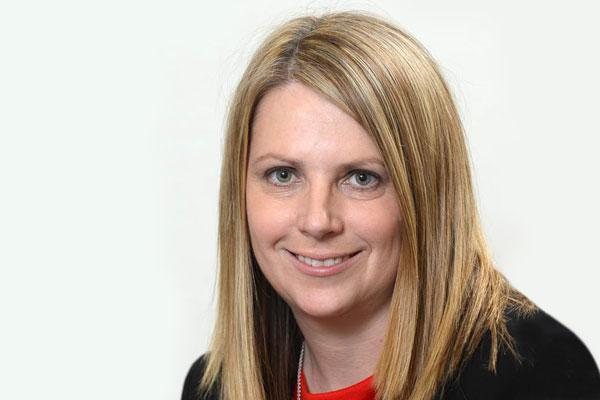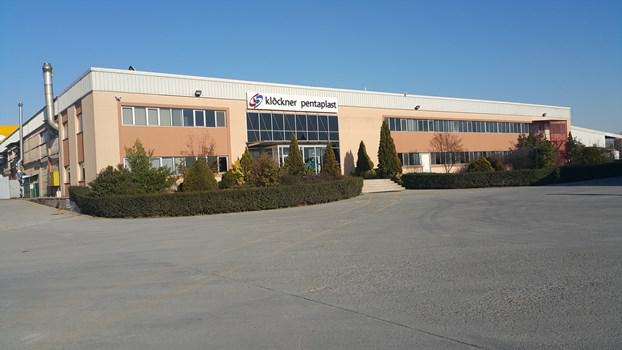Wales hopes the newly-launched £6.5m circular economy fund will help the country hit its target to have a 70% recycling rate by 2025

(Credit: WRAP Cymru)
A new £6.5m fund in Wales aims to help develop a circular economy in the country – in an effort to achieve a 100% recycling rate by 2050.
The Welsh government’s scheme is designed to offer grants to businesses seeking capital investment funding so they can increase their use of recycled materials in manufactured products, components or packaging.
During a visit to the German plastic film and packaging producer Klöckner Pentaplast’s site in Caerphilly, deputy minister for housing and local government Hannah Blythyn said she hoped the fund will reduce the environmental impact of companies based in Wales.

She said: “Our fund will help to cover some of the costs of investing in new equipment and infrastructure, increasing the use of recycled materials in Welsh manufacturing.
“We know this has the potential to bring significant cost savings as well as helping businesses to reduce their carbon footprint.
“Increased use of recycled materials provides economic opportunities. It also helps create and protect jobs by making Welsh manufacturing companies more resource efficient and resilient in terms of the security of supply of raw materials.”
How Wales has become a UK leader in recycling and in the circular economy
In March 2019, the UK government’s Department for Environment Food and Rural Affairs released figures on the recycling rates from households of each country in 2017.
It revealed that Wales had a 57.6% household recycling rate, 11.3% higher than the next best country in the British Isles, Northern Ireland.
In the latest recycling table comprised by environmental consultancy firm Eunomia Research & Consulting in 2018, the country comes out as having the fourth best recycling rate in the world (52.2%).

Part of the reason for this is because, constitutionally, its policymakers have a statutory duty to help promote sustainable development.
Like the rest of the UK, recycling in Wales is operated by local administrations.
But the Welsh Assembly has offered its own recovery system, financed by councils, with most of these taking on board the policy.
Its recycling system has been so successful that it reached its 2019/2020 recycling target of 64% four years early.
As part of its One Wales, One Planet objective, it aims to reach 100% by 2050 – meaning every single material used in the country would be recycled.
Andy Rees, head of waste strategy at the Welsh government’s Department for Natural Resources and Food, spoke about the circular economy system at the Foodservice Packaging Association’s environment seminar earlier this year.
He said: “The circular economy is a process, but you can still use renewable plastics to replace them.
“It is a process and not an end result – the end result is our One Wales, One Planet resources goal that we have set ourselves by 2050.
“That means reducing material use, reducing waste by two-thirds and keeping our economy going.”
View from industry about Wales circular economy fund
Neil Hancock, site manager for Klöckner Pentaplast, said his company hopes to improve the recycling system across the globe.
He added: “As a sustainably-driven manufacturer of plastic packaging for fresh food, we encourage collaboration at every opportunity.

“As outlined in our Positive Plastics Pledge, we are committed to help increase recycling and use more recycled material in our packaging to achieve a circular economy, while protecting food, keeping it safe and fresher for longer.
“We partner with our customers, retailers, suppliers, recyclers and international, national and local governments to improve the recycling system and to help engage citizens and local communities in responsible disposal of plastic waste, which in fact is a valuable raw material for new products.”
Ms Blythyn added: “Wales is on a journey towards becoming a circular economy, which means making more of the products we consume and recycling as much waste as possible.
“Klöckner Pentaplast is an example of how recycled material can be used to create a successful product, while benefiting our environment and stimulating demand for recycled material.
“In Wales, we recycle more than anywhere else in the UK and we are within touching distance of being the world’s top recycling nation.
“I want us to go even further towards a truly circular economy.”
